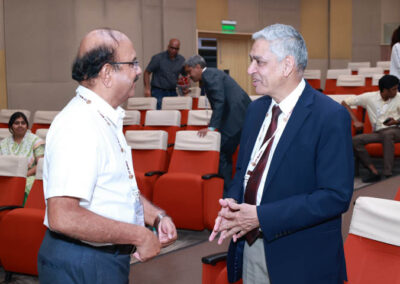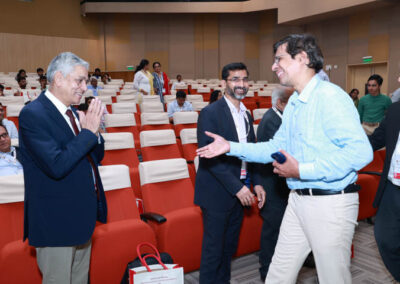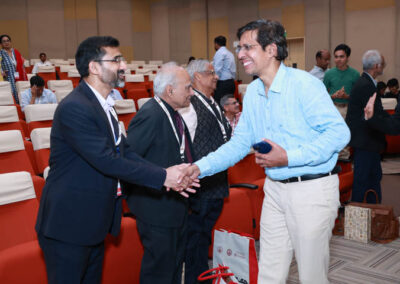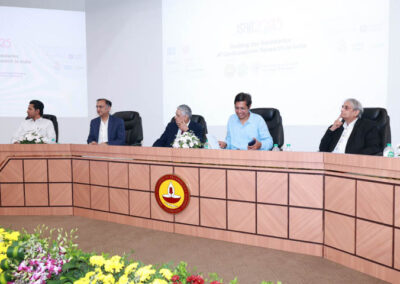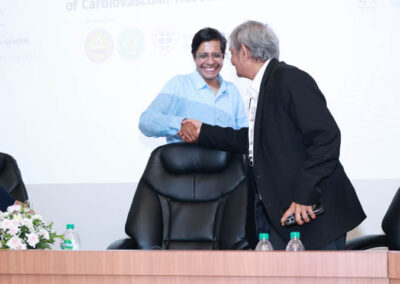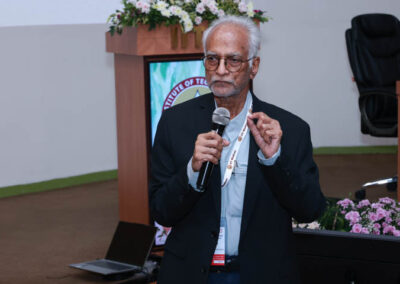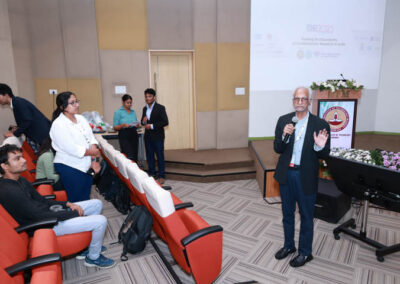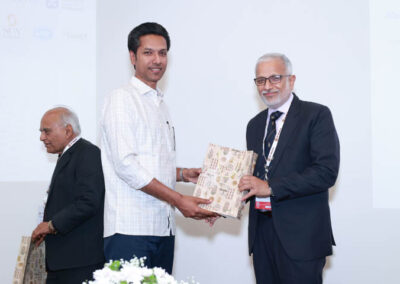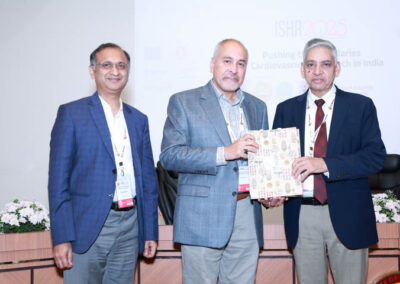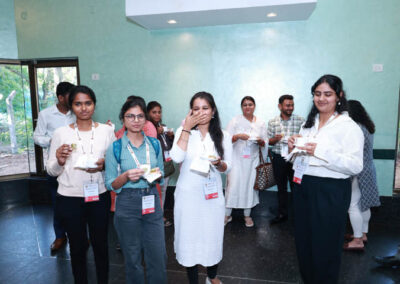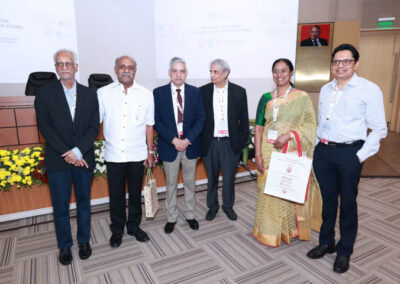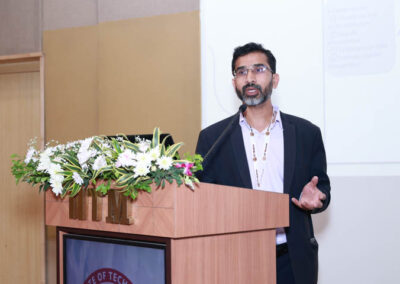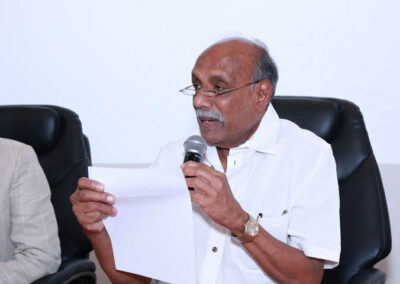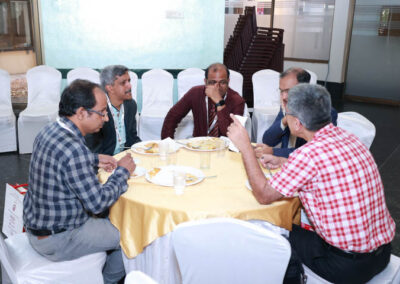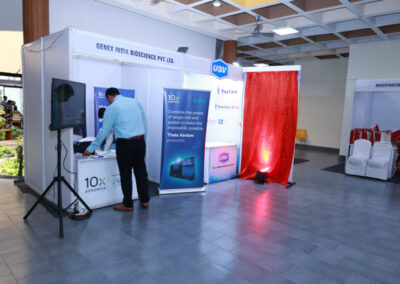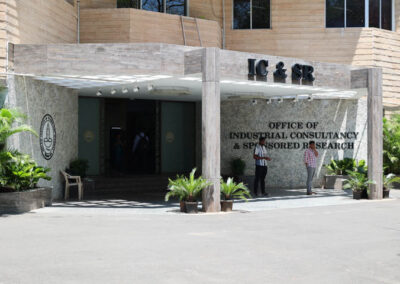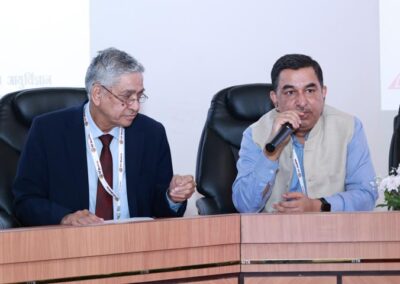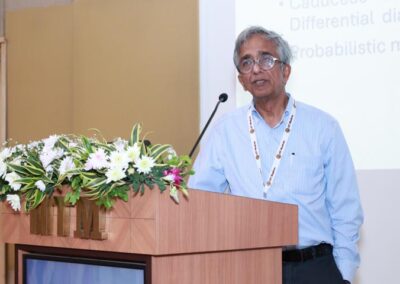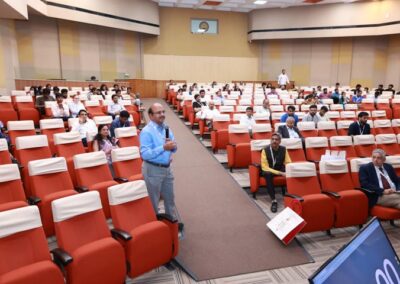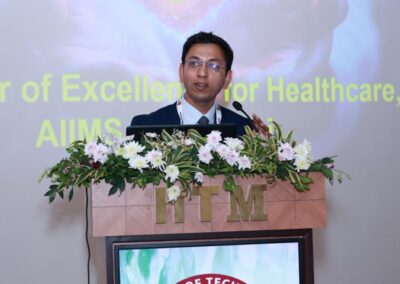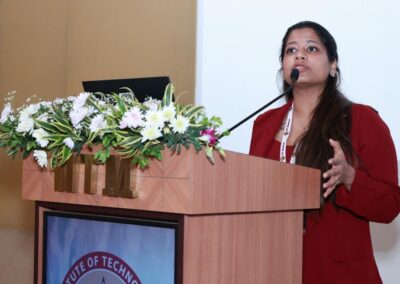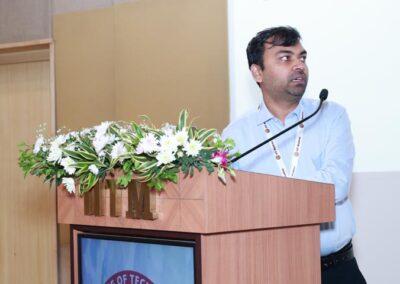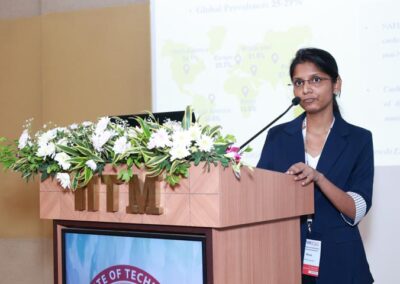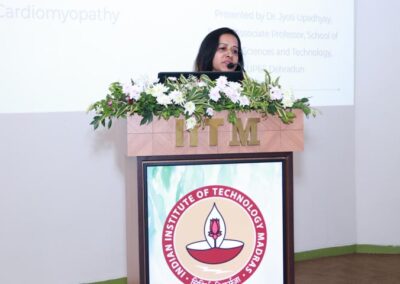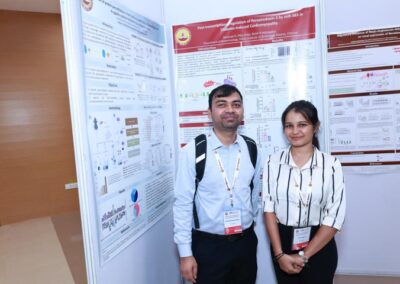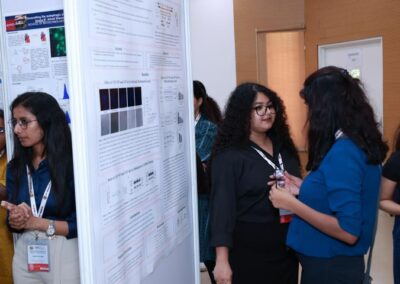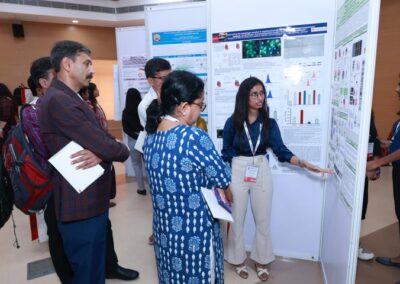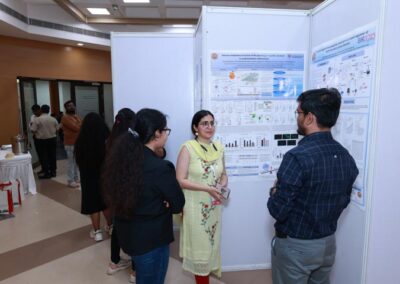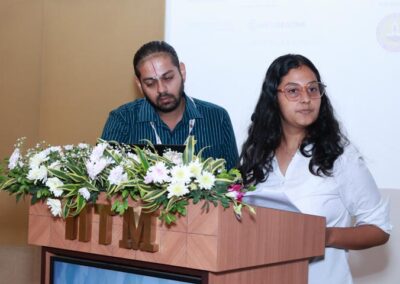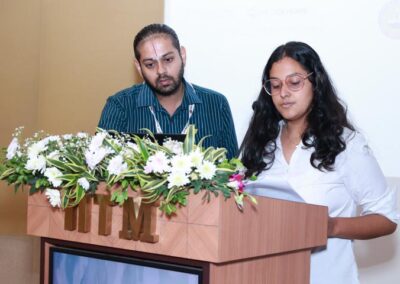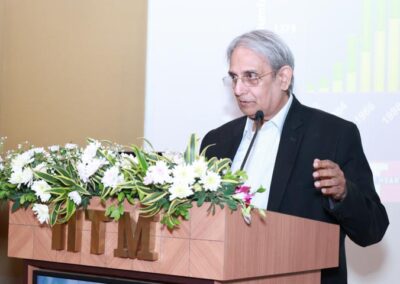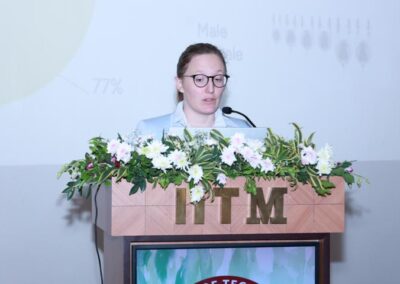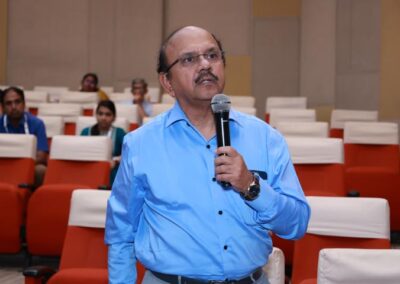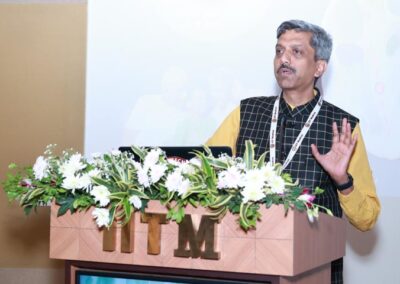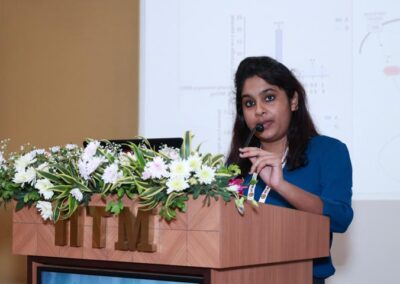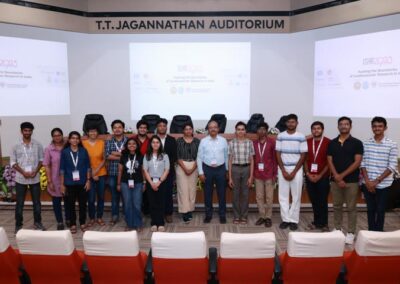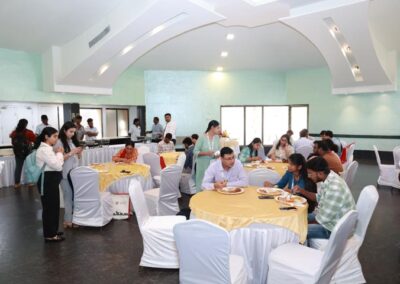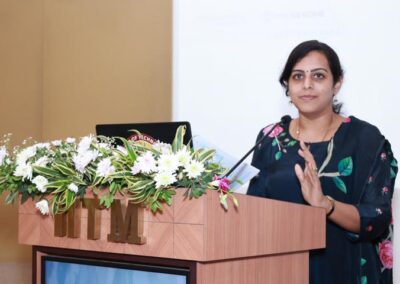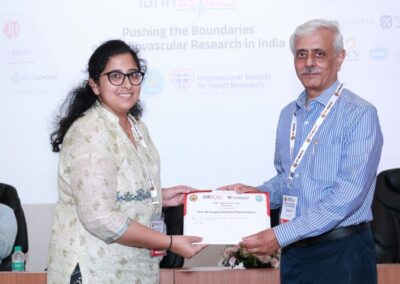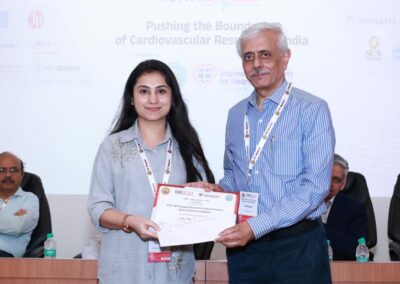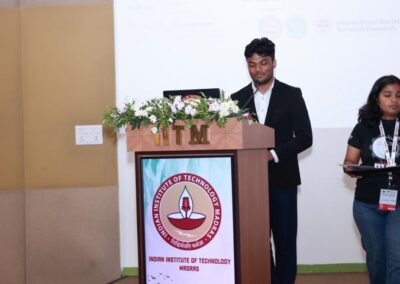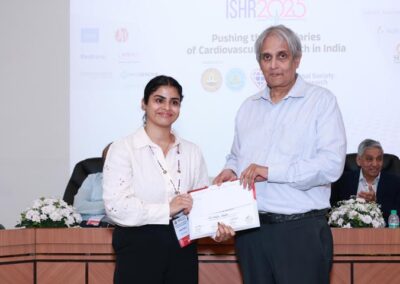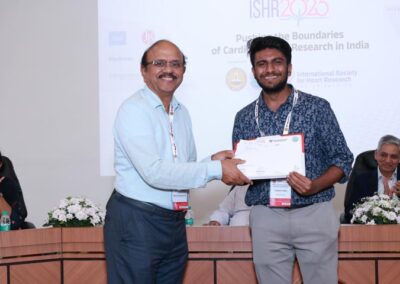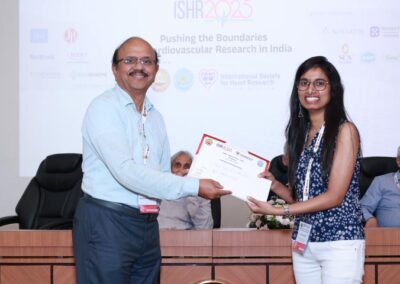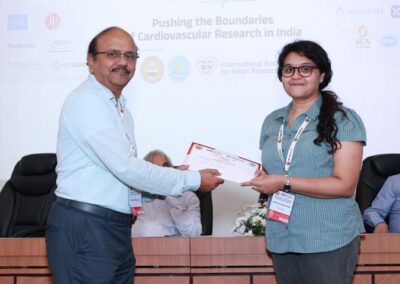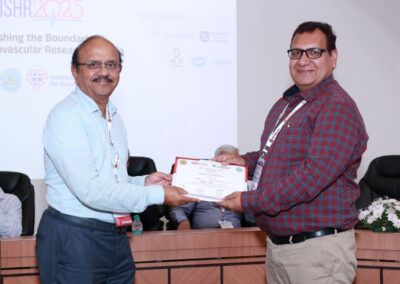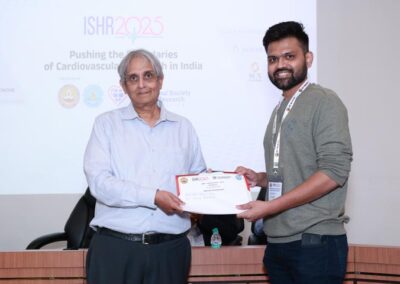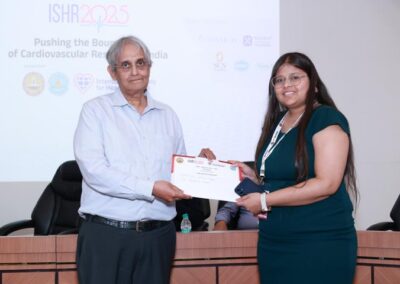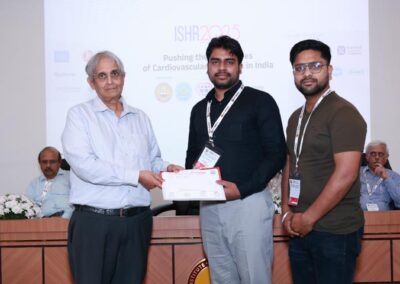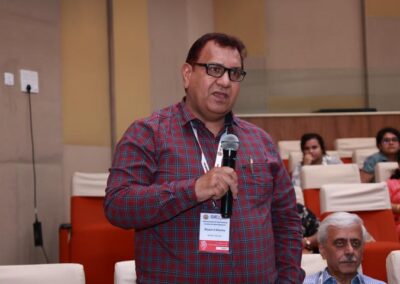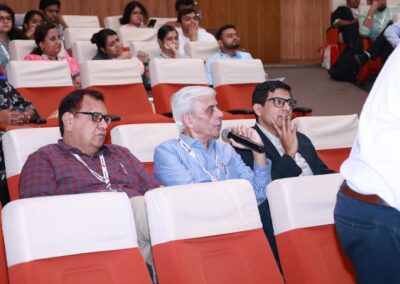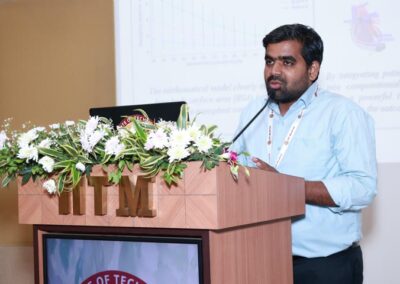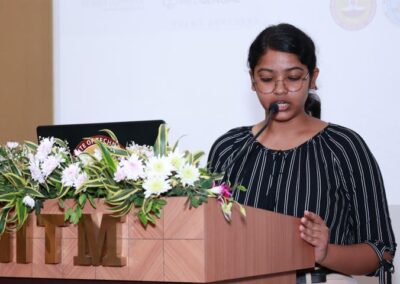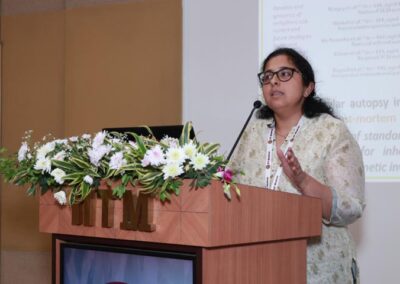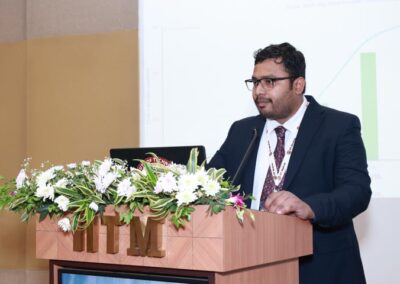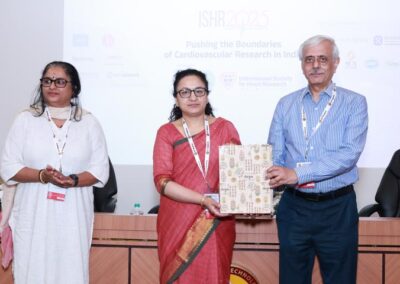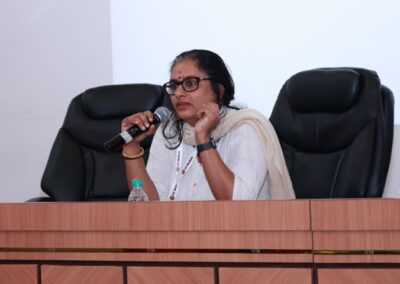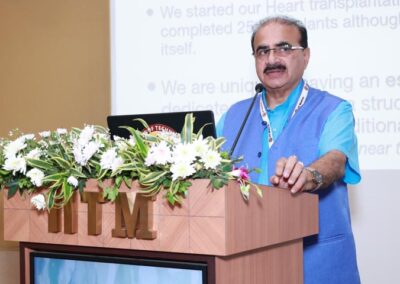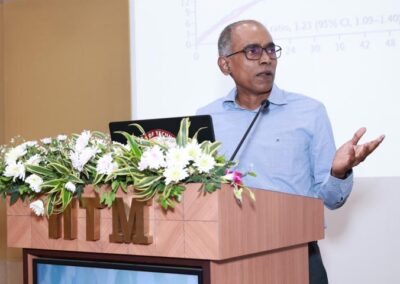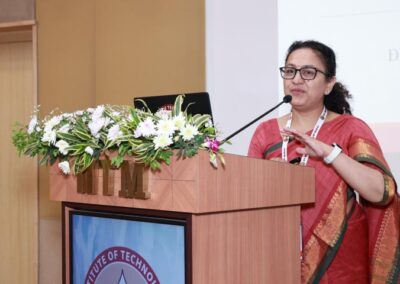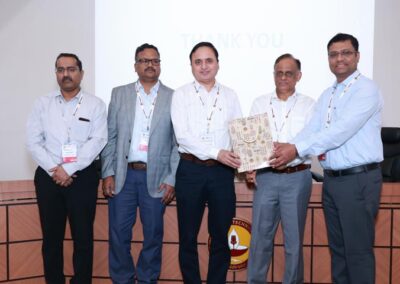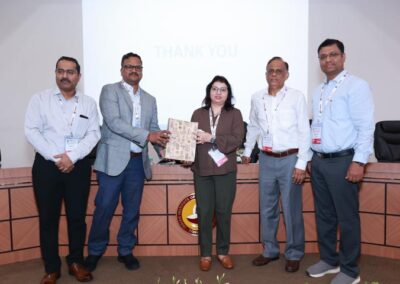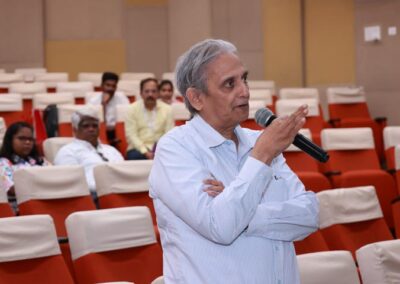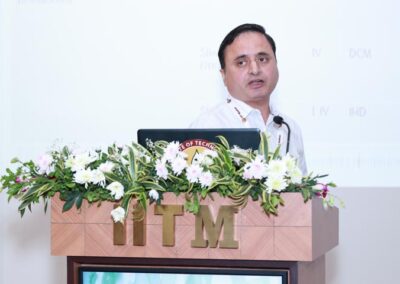
ISHR 2025
Pushing the Boundaries of Cardiovascular Research in India
Pushing the Boundaries of Cardiovascular Research in India
The 2025 annual meeting of the International Society for Heart Research (ISHR) was co-organized by the Department of Medical Sciences & Technology (DMST), IIT Madras and the Indian Section of ISHR, held from March 21st to March 23rd, 2025. The event brought together over 100 distinguished scientists, clinicians, and early-career investigators from across India and the world, showcasing the latest advancements in cardiovascular research, clinical innovation, digital medicine, and translational science.
Held at the vibrant IIT Madras campus, the three-day conference featured thematic sessions, plenary orations, panel discussions, competitive awards, and a high-energy quiz, reinforcing the collaborative spirit of ISHR’s mission: to advance heart research through interdisciplinary knowledge exchange.
Day 1: Exploring Genomics, Cardiometabolic Risk, and Global Collaboration
The conference opened with a welcome and introduction by prominent names in Indian cardiology including Dr. K.K. Talwar and Dr. K.R. Balakrishnan. The first major session—”Genomics and CVD: Marching Forward”—set the tone for the scientific rigor that followed. Talks covered genetic channelopathies, epigenetic regulators, and novel transcriptomic tools, with international perspectives.
The session on Cardiometabolic Syndrome delved into AI-based early detection, microRNA therapeutics, and redox-mediated metabolic pathways, emphasizing how metabolic dysfunctions interlink with cardiovascular risk.
One of the key highlights of Day 1 was the Dr. P.L. Wahi Oration, delivered by Dr. B. Somaraju, who urged the medical community to embrace both specialization and holistic wisdom in patient care. This was followed by the much-anticipated “East Meets West” joint session, where global cardiovascular leaders such as Dr. Yoshihiko Saito (Japan) and Dr. Buddhadeb Dawn (USA) discussed cardiorenal syndromes and stem cell therapy.
The inaugural ceremony was graced by Prof. V. Kamakoti, Director, IIT Madras who was the chief guest. Prof. R. Krishna Kumar, Institute Professor, IIT Madras, and Prof. Boby George, Head, Department of Medical Sciences and Technology, addressed the gathering. The ceremony was followed by a spirited inter-institutional cardiology quiz, with participants showcasing sharp knowledge and enthusiasm, making the evening both educational and engaging.
Day 2: From AI to Advanced Therapeutics
Day 2 began with an oral abstract session highlighting research by young investigators—from lipidomic network modeling to renalase gene variants in cardiovascular disease.
A deeply inspiring session titled “New Era in CV Devices: An Indian Perspective” spotlighted indigenous innovations like the MyVal transcatheter valve and India’s first LVAD (left ventricular assist device), reaffirming India’s capability in cutting-edge biomedical engineering.
The ML Bhatia Oration by Dr. Nirmal Ganguly delved into microbiome-based interventions and sex-specific heart failure models—an excellent example of integrating basic science with clinical relevance.
Later in the day, a marquee session on Artificial Intelligence in Cardiology—chaired by leading figures such as Prof. R. Krishna Kumar, Dr. Ambuj Roy and Dr. K. Kannan—addressed AI’s growing impact across domains like digital twins, ECG interpretation, cardiac imaging, and LVAD control systems. Speakers emphasized that while AI is no silver bullet, it is certainly transforming both diagnostics and decision-making in cardiology.
Sessions on heart failure, cardiac fibrosis, and lipid metabolism highlighted therapeutic frontiers and molecular insights, culminating with the Torrent Research Award for mid-career innovation, presented to Dr. Nagendra Boopathy for his work on clonal hematopoiesis and heart disease.
Day 3: Translational Breakthroughs and the Future of Digital Cardiovascular Medicine
The final day opened with a high-impact session on Advanced Heart Failure, featuring discussions on biopsies, rejection surveillance, and inflammatory cardiomyopathies. The session “Research Made in India” celebrated indigenous efforts—from CAD in women to cardiac remodeling due to early-life stress.
The NK Ganguly Award for Clinical Sciences (Early Career Investigator) highlighted India’s young research talent, with compelling studies on genomics of sudden cardiac death, cardiac resynchronization, and novel circular RNAs in congenital heart disease.
A session titled “The Intersection of Biology and Technology” exemplified the conference’s interdisciplinary ethos, with talks on noncoding RNA dynamics, Hippo signaling, and emerging fibrotic mediators in cardiovascular disease. This led into the final highlight session: “It is a Digital World!”, which explored computational modeling, AI tools, predictive screening, and even phytochemical research using machine learning.
The conference concluded with a valedictory session and lunch, wrapping up three packed days of collaborative learning, innovation, and vision for the future.
A Platform for Emerging Talent
One of ISHR 2025’s key goals was to mentor and recognize early-career researchers. From the NS Dhalla Basic Sciences Award to the NK Ganguly Clinical Sciences Award, several young scientists received recognition, underscoring the importance of nurturing next-generation cardiovascular researchers.
Science Without Borders
ISHR 2025 exemplified the power of collaborative, interdisciplinary, and translational science. With contributions from India, Sweden, Japan, Singapore, Australia, and the USA, and a balanced blend of genomics, AI, digital medicine, stem cell therapy, and clinical cardiology, the conference helped shape the roadmap for tackling cardiovascular diseases in the decades ahead.
The Department of Medical Sciences & Technology at IIT Madras extends heartfelt thanks to all speakers, organizers, attendees, and supporters for making ISHR 2025 a grand success.

